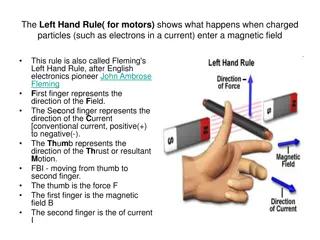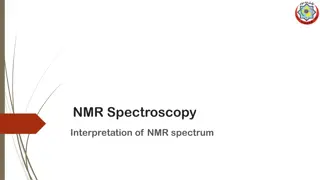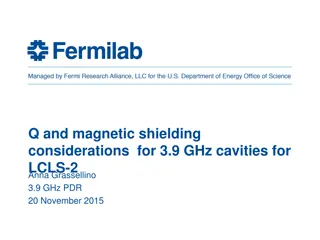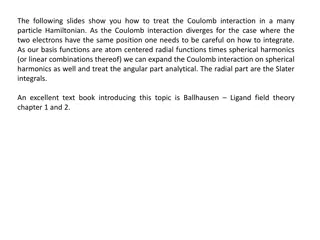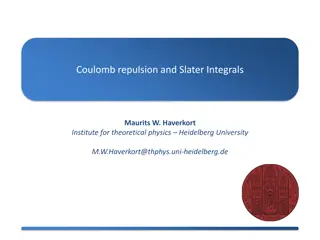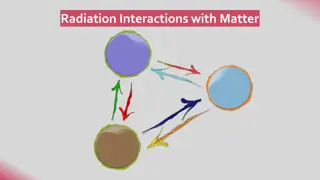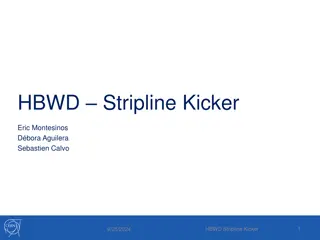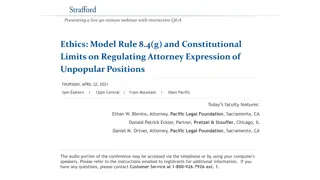Understanding Shielding and Slater's Rule in Chemistry
Explore the concept of shielding and Slater's rule in chemistry, which explains how electrons in different energy levels affect the effective nuclear charge experienced by valence electrons. Learn how to estimate shielding extent using Slater's rules and calculate the effective nuclear charge for elements like Nitrogen and Copper.
Download Presentation

Please find below an Image/Link to download the presentation.
The content on the website is provided AS IS for your information and personal use only. It may not be sold, licensed, or shared on other websites without obtaining consent from the author. Download presentation by click this link. If you encounter any issues during the download, it is possible that the publisher has removed the file from their server.
E N D
Presentation Transcript
UNIT 2 Shielding and Slater's Rule By Hemanta Deka
Average radius of 2s orbital is greater than 1s. 2s electrons are repelled by 1s electrons.
Estimate the extent of shielding (): Slater s Rules Step 1- Write the electron configuration of the atom in the following order: (1s) (2s, 2p) (3s, 3p) (3d) (4s, 4p) (4d) (4f) (5s, 5p) ., etc Step 2- Identify the electron of interest and ignore all electrons in higher (higher energy levels) groups as the electrons in higher energy levels will not contribute to shielding of lower energy group electrons. Step 3- Slater's Rules are classified as follows A) Shielding experienced by an s and p electrons. All the electrons within same group shield 0.35. All the electrons within the n-1 group shield 0.85 All the electrons within the n-2 or lower groups shield 1.00 B) Shielding experienced by nd and nf valence electrons All the electrons within same group shield 0.35 All the electrons within the lower groups shield 1.00 Shielding constant can be calculated Zeff = Z-
Numerical Calculate the Zeff on valance electron of Nitrogen. Atomic number is 7. Electronic configuration-1s2,2s2, 2p3 S = (2 X 0.85) + (4 X 0.35) S= 3.10 Zeff= Z- Z= 7.0 - 3.1= 3.9 Calculate the Zeff on valance electron of Copper. Zeff= Z- = = = = Cu - (1s)2 (2s, 2p)8 (3s, 3p)8 (3d)10 4s1 Thus, = (n 1)s2p6 + (n 1)d10 + (n 2)s2p6 + (n 3)s2 8 0.85 1 10 8 1 2 1






